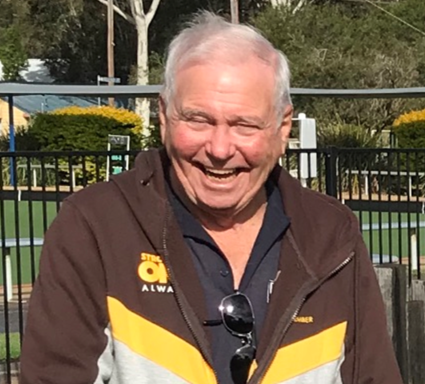Volunteers are peerless in men’s health

The Men’s Health Peer Education (MHPE) Program began in 2001 in response to a prominent study of Vietnam veterans which revealed they experienced higher rates of health issues than the general population.
The DVA-funded program encourages men to take part in wellbeing initiatives and share responsibility for improving their own health and wellbeing. Led on the ground by trained volunteers who, like John Macartney, are often veterans themselves, the MHPE program raises awareness about men’s health issues in the veteran community.
‘Sharing information and knowledge encourages others to take ownership of their health,’ John says. Trained volunteers form an integral part of the program and its peer support model. This helps to facilitate events that encourage men to take part while promoting DVA’s social health programs. Without volunteer support, the program would not still be around today.
John’s motivation as a volunteer is simple yet profound: ‘I have a desire to make a tangible and positive difference in the lives of veterans – which I can achieve in my role of MHPE volunteer,’ he says.
More than five million people volunteer across Australia each year. It might come as no surprise that many of them are part of the veteran community. In fact, data recently released by the Australian Institute of Health and Welfare revealed that veterans were more likely to volunteer compared to Australians who’ve never served.
John says that volunteering has boosted his health and happiness. ‘It’s given me a greater sense of belonging, and I’ve made many great friends.’ We say thanks to John and all of the other wonderful volunteers who’ve helped MHPE become what it is today. For more information about the program and opportunities to volunteer as a trained MHPE volunteer visit the DVA website.
Image: MHPE volnteer John Macartney
